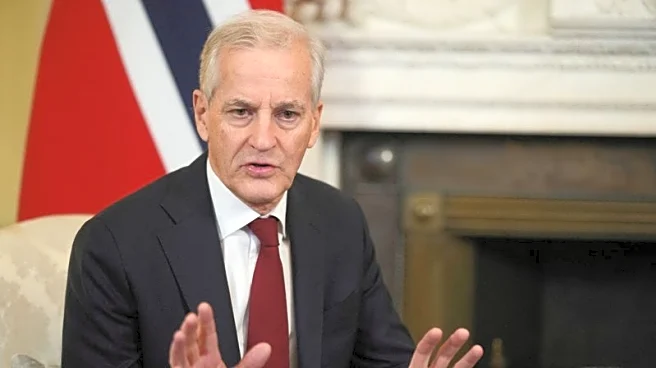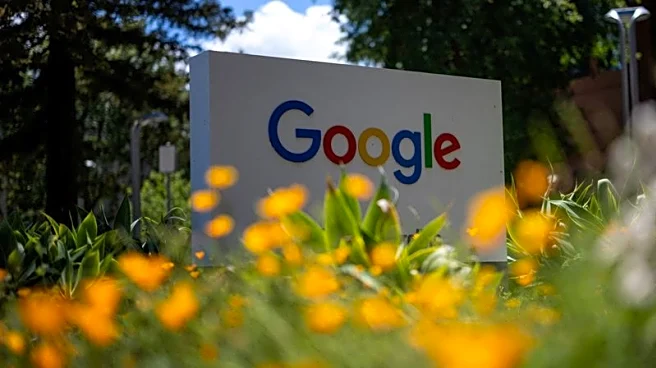What's Happening?
Paris Saint-Germain (PSG) is reportedly considering a record-breaking transfer fee to acquire Barcelona forward Lamine Yamal. According to GOAL, the French club may pay approximately €237 million for the 18-year-old
Spaniard, which would surpass the current record set by Neymar's transfer from Barcelona to PSG for €222 million in 2017. Yamal, who has been with Barcelona since 2023, has made 111 appearances, scoring 27 goals and providing 38 assists. His contract with Barcelona is set to run until the summer of 2031, and his market value is estimated at €200 million by Transfermarkt.
Why It's Important?
The potential transfer of Lamine Yamal to PSG for a record fee highlights the ongoing financial dynamics within top-tier football clubs. Such a move could significantly impact the transfer market, setting a new benchmark for player valuations. For PSG, acquiring Yamal would bolster their attacking options and potentially enhance their competitive edge in domestic and international competitions. Conversely, Barcelona might face challenges in replacing a key player, affecting their squad depth and performance. The transaction underscores the financial power of clubs like PSG and the evolving nature of player transfers in football.
What's Next?
If the transfer proceeds, PSG will likely focus on integrating Yamal into their squad, optimizing his role within their tactical framework. Barcelona may need to strategize on filling the void left by Yamal, possibly exploring new signings or promoting talent from their youth academy. The transfer could also prompt other clubs to reassess their player valuations and transfer strategies, potentially leading to a ripple effect in the market. Stakeholders, including fans and analysts, will be keenly observing the developments and implications of this high-profile transfer.
Beyond the Headlines
The record-breaking transfer fee for Yamal could spark discussions on the sustainability of such financial practices in football. Ethical considerations regarding the commercialization of young talent and the impact on smaller clubs may arise. Additionally, the move could influence cultural perceptions of football as a sport increasingly driven by financial interests rather than pure athletic competition.










